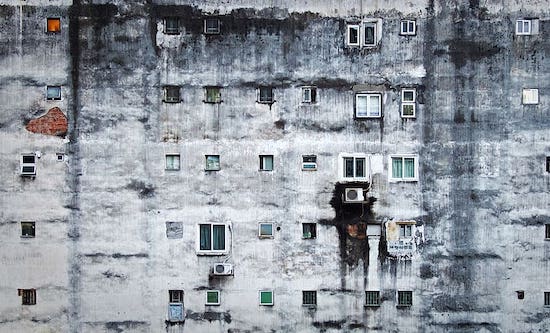
Boris Johnson has described his plans to boost house building in the wake of the coronavirus crisis as: ‘the most radical reforms of our planning system since the end of the Second World War’. The proposals, outlined by Housing Minister Robert Jenrick on 21 July, do indeed turn the policies of the 1945 Labour government on their head. For a limited period after the war, local authorities were given greater powers and funding to speed up the provision of council housing, built (initially at least) to high standards of space, light and durability, to resolve the postwar housing crisis and begin the process of eradicating slum accommodation. ‘Project Speed’ will do precisely the opposite, bypassing local planning authorities, and giving the green light to the private sector to accelerate the creation of a new generation of slums.
Since September, under extended ‘permitted development’ rules, developers are no longer required to submit planning applications to demolish and replace redundant buildings. Planning permission is not needed to convert a wide range of commercial buildings, including offices and shops, into flats. Owners wanting to add new storeys to blocks of flats have become eligible for a ‘fast-track approval process’.
By bypassing local authorities, developers are freed from inconvenient regulations relating to space and light as well as energy efficiency requirements, all of which represent an erosion of potential profits. It is no longer possible to object to the new developments on grounds of health, community infrastructure or environmental concerns. Developers are also exempt from Section 106 obligations to provide affordable housing or pay a levy towards local infrastructure.
The plans have been condemned by housing charities, local government and the Chartered Institute of Building, amongst others. Everyone knows what unsafe and squalid homes result from the slashing of planning regulations and local authority oversight. Since permitted development rights were first extended in 2013, around 100,000 units have been delivered under its provisions. These include blocks of temporary housing such as the notorious Terminus House in Harlow (see FRFI 272, ‘Suffer little children’), branded a ‘human warehouse’, with many families housed in single cramped rooms, some as small as 18 square metres. On the same day Jenrick made his announcement, a report commissioned by his own department concluded that the majority of such homes resulted in a ‘worse quality of life’ than those built with planning permission. The researchers for the aptly titled The slums of the future describe tiny, dark, badly ventilated apartments, some with no windows at all. Only 22% of dwellings created through permitted development met the nationally described space standards; some ‘studio apartments’ – single-room living spaces – measured just 16 square metres. They were eight times more likely to be located in the middle of a business park or industrial estate than those given planning permission, while only 3.5% had access to outdoor space. These are the spaces into which the poorest sections of the working class will increasingly be crammed; many of these units – one cannot call them homes – are then leased to councils as temporary accommodation, leaching public money while condemning the poor to cramped, unhealthy conditions in which diseases like coronavirus spread easily.
The government claims that local authority planning regulations hold up vital house-building. The reality is that nine in ten planning applications are approved by councils, yet more than a million homes given planning permission in the past ten years have not been built, as developers bank land and reduce the flow of housing onto the market to sustain their profits. The move has nothing to do with solving the housing crisis and everything to do with furthering the government’s ideological drive to hand ever more power to the private sector. The result of this slash-and-burn deregulation will be huge profits for unscrupulous builders and developers and more housing misery for the working class. It is the antithesis of what is needed. We demand decent, affordable, publicly owned housing for all.
Cat Wiener




